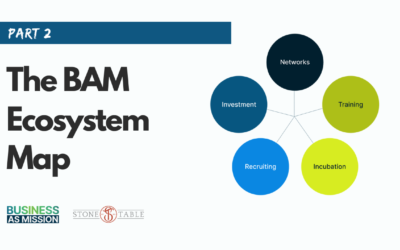From The Field: How an English School is Planting the Church in Hard to Reach Places

This is an interview with one of our Business as Mission (BAM) practitioners using business as a mechanism for planting the church in areas of the world where you can’t do that with traditional missionary methods. In order to protect the work being done we will not be sharing their names or specific locations for their protection.
Why is Business As Mission (BAM) so important today within your community and in your culture?
We must have legitimate reasons for living in a culture that does not allow traditional missionary work. Therefore, we had two choices.
- We could start a non-governmental organization (NGO), which is supposed to operate independent of the government (although in our context this is not the case).
- We could start a not-for-profit business.
Why did you choose your business model and how has it impacted the community?
We chose to start a not-for-profit business in the form of an English School. The long-term plan is for this business to be sold to a local believer. The business was launched from a grant (missions donations) and the school staff (the missionary teams) function as volunteer teachers at the school. Teachers are highly respected by the local people, so we have tied everything to education. This ultimately becomes the mechanism for discipleship as it opens the door to every aspect of the community.
The schools bring people to us! We do not have create opportunities to share our faith, they come to us every day. But we are not limited by the boundaries of our buildings. Through our education/replication model, our business takes us out into the community as well. I will explain in a story below.
Tell us a story about someone who has been impacted by your business.
Recently, I was in town having a meal on the street with some college age guests from the U.S. As is common when guests visit, some of the young local guys were attracted to the American girls in the group. The young men began to ask me in Swahili if I could help set them up on a date.
The young men were sitting in a group of their peers, so in Swahili, I challenged them with the question:
“What would make these young ladies choose to be with you?”
The answer was riotous laughter from their friends!
I took the opportunity to challenge the local traditional idea of a marriage relationship with the Biblical model. I told them as a teacher and a man who has successfully been married to one wife for almost 28 yrs, I have a secret source of wisdom that I was willing to share with them, but it would cost them their time. Then I turned and walked away.
Two of the young men chased after me asking where they could get this secret wisdom. One of these young men is Issah, which is the Arabic name for Jesus. Today, Issah is discovering that his namesake is that secret source of wisdom as we study the Bible together.
This is how our BAM presence is making disciples and planting the church in one of the most unreached areas the world.



